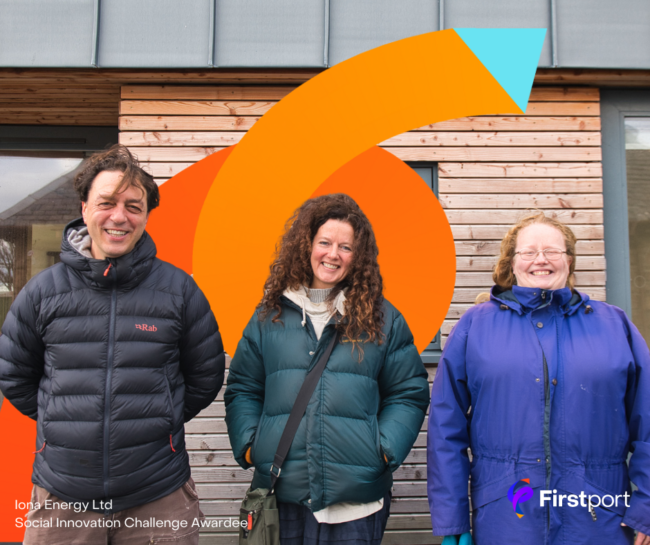2025 Social Innovation Challenge launches with fresh approach
The new edition seeks innovative solutions aligned to the First Minister’s priorities for Scotland
The Social Innovation Challenge (SIC) aims to kick-start innovative social enterprise solutions addressing some of the most complex challenges of our times. Every year, it supports ideas which have the potential to address deep-rooted, complex social issues in creative, sustainable and effective ways.
The Social Innovation Challenge: an iterative process
Over the last three years, the Social Innovation Challenge adopted a different theme every year, seeking solutions to the following issues:
- 2022: climate change challenges faced by rural communities;
- 2023: the rising cost of living;
- 2024: barriers to better health and wellbeing.
As well as adapting the theme to emerging challenges within the Scottish landscape, the programme itself was built through constant iteration. Every year, we implemented small improvements, aiming to make the SIC appealing, accessible and valuable to potential applicants.
However, with the heightened popularity of the programme, its competitive nature also increased. What’s more, Firstport as an organisation has grown and evolved since the challenge was first developed. As such, three years in felt like the ideal time to review the programme in more detail and re-align it with our strategic priorities, as well as ensuring that it continues to fill a useful gap within the Scottish social enterprise landscape.
Increasing consistency, maximising impact
Going forward, the Social Innovation Challenge will look a little bit different. First of all, there will be more consistency across the themes and processes. To fulfil our aim of supporting solutions to the deepest issues currently present in Scottish society, we have taken the decision to align the programme with the First Minister’s priorities.
As such, in 2025 we are inviting applications addressing the following themes: eradicating child poverty, growing the economy, tackling the climate emergency and ensuring high quality and sustainable public services. These themes have been interpreted through a social enterprise lens, and you can scroll down for further details, as well as examples, of the kind of ideas we are seeking, at the end of this blog.
The process has also been consolidated, taking account of the feedback received over the last three years. As such, the Social Innovation Challenge continues to offer long application periods, in-depth guidance and proactive, inclusive communications to all who express an interest in the opportunity.
Increasing awards, maximing value
Another big change for 2025 is that we will now offer not one, but three grants: the overall Challenge winner will receive a £50,000 grant, as before, but now two runner-up candidates will also receive grants of £25,000 each to enable them to develop their solutions. This means applicants will have higher chances of success, we can support more ideas and, ultimately, we can help create more social impact.
It is worth mentioning the aspects that have worked well in the past, that we are keeping in place for future editions: we are pleased to continue our partnership with The Ventures Lab, which allows applicants to the Social Innovation Challenge to also have their applications reviewed by our colleagues. Whilst this step is optional, for those with deeply impactful and highly enterprising ideas, this could be another invaluable source of support.
Addressing the themes
We have interpreted the four Scottish Government priorities thorugh a social enterprise lens. This means that we have distilled the themes down to the kind of innovative ideas that we are keen to see, to help bring them to life.

- Eradicating child poverty: innovative ideas which help the families of children living in deep poverty increase their long-term wellbeing and economic resilience;
Firstport alumni example: Klas Care CIC aims to reduce the number of families living in poverty by providing affordable and flexible childcare, enabling parents to access education, training or employment. KLAS Care delivers additional social benefits by reinvesting profits into subsidised fees for low-income families.
- Growing the economy: projects providing innovative routes to meaningful employment for individuals facing significant barriers (such as disability, stigma or discrimination);
Firstport alumni example: Invisible Cities trains people who have experienced homelessness to become walking tour guides of their own city. They support their guides on a one-to-one basis to achieve their goals and use part of their profits to support them through personal projects such as accessing further education.
- Tackling the climate emergency: projects proposing innovative ways of reducing reliance on fossil fuels or delivering regenerative environmental solutions (such as increasing biodiversity, improving soil health or addressing water pollution).
Firstport alumni example: Upper Ballaird Farm Co-op is a smallholding of 9+ hectares and social enterprise, which aims to pay fair wages to their members whilst also benefiting people, capturing carbon and creating habitat for an increasingly diverse range of wildlife.
- Ensuring High Quality and Sustainable Public Services: ideas that alleviate pressure on essential services by offering support to those who need it most, through innovative means.
Firstport alumni example: Adaptive Riders Collective is a social enterprise that provides opportunities for people with disabilities to experience the benefits and freedom of nature through off-road adaptive cycling. Through their services, they create an inclusive collective of adaptive and non-disabled riders, offering a host of physical and mental health benefits, as well as tackling exclusion and isolation.
Interested in the Social Innovation Challenge?
Expressions of Interest are now open until 28 June. For more information, or to register an expression of interest, go to https://www.firstport.org.uk/funding/social-innovation-challenge/ and if you have any questions email us at info@firstport.org.uk.
